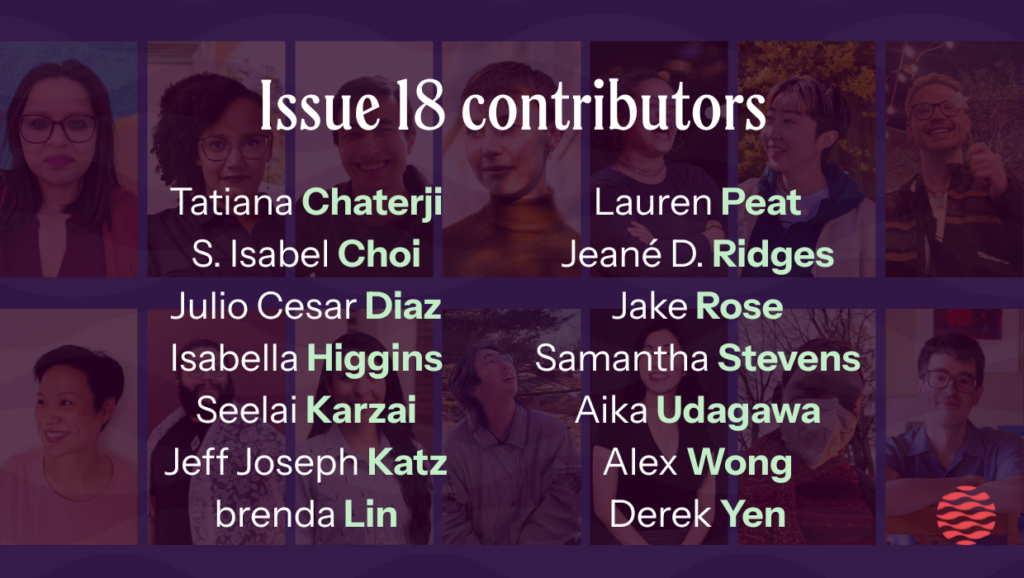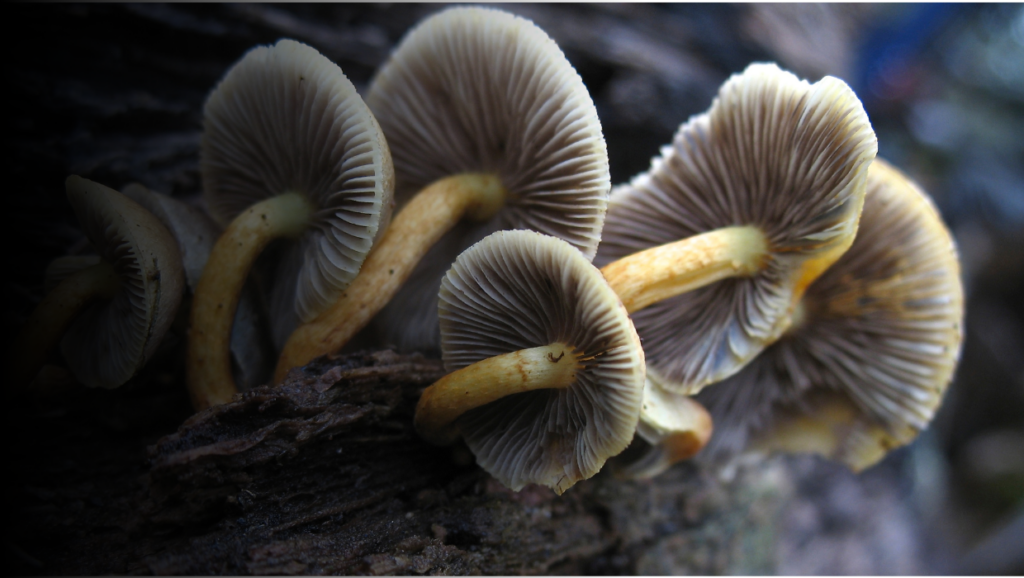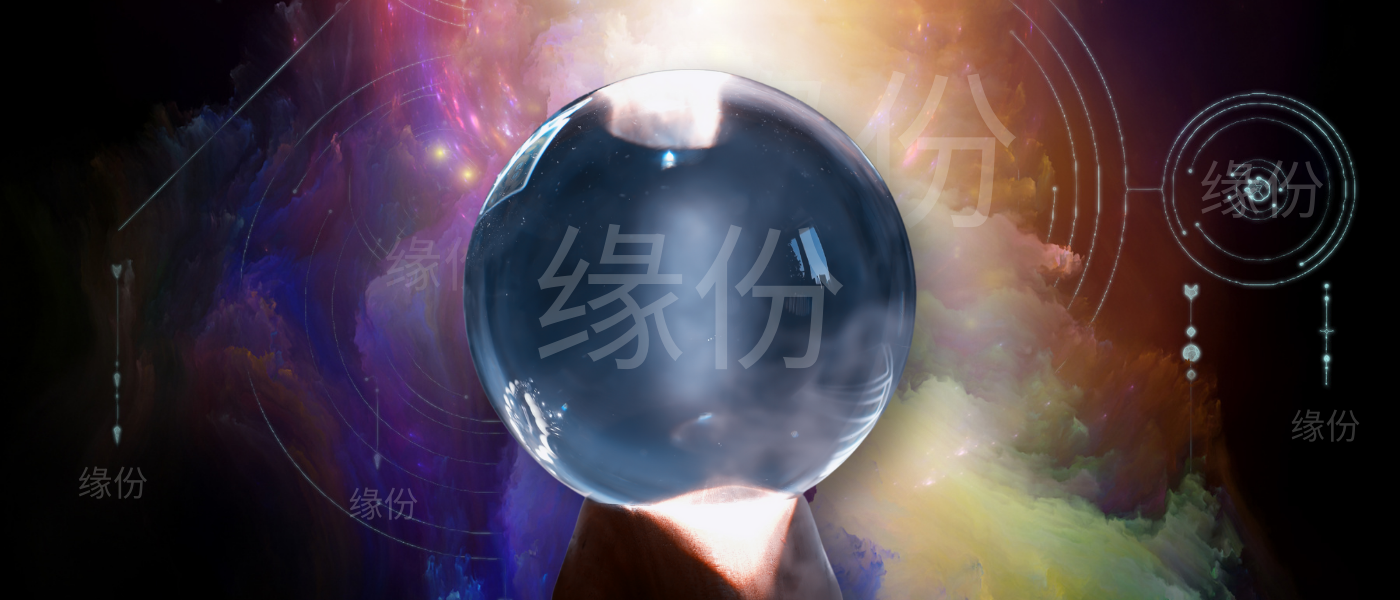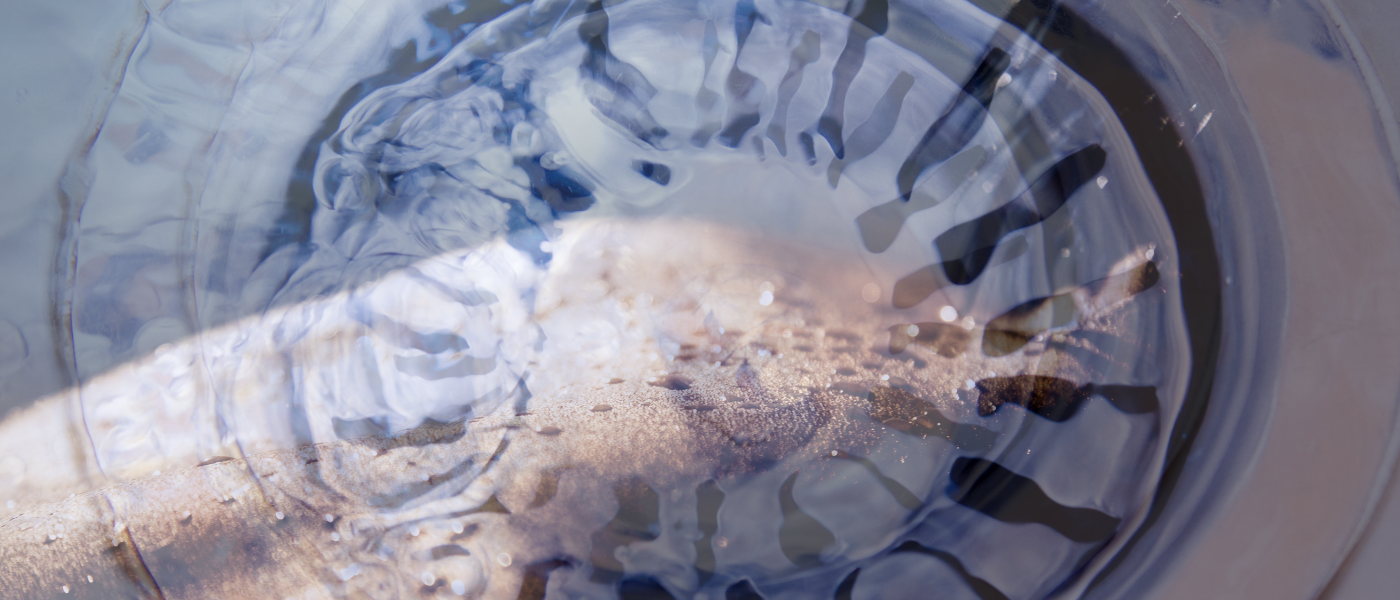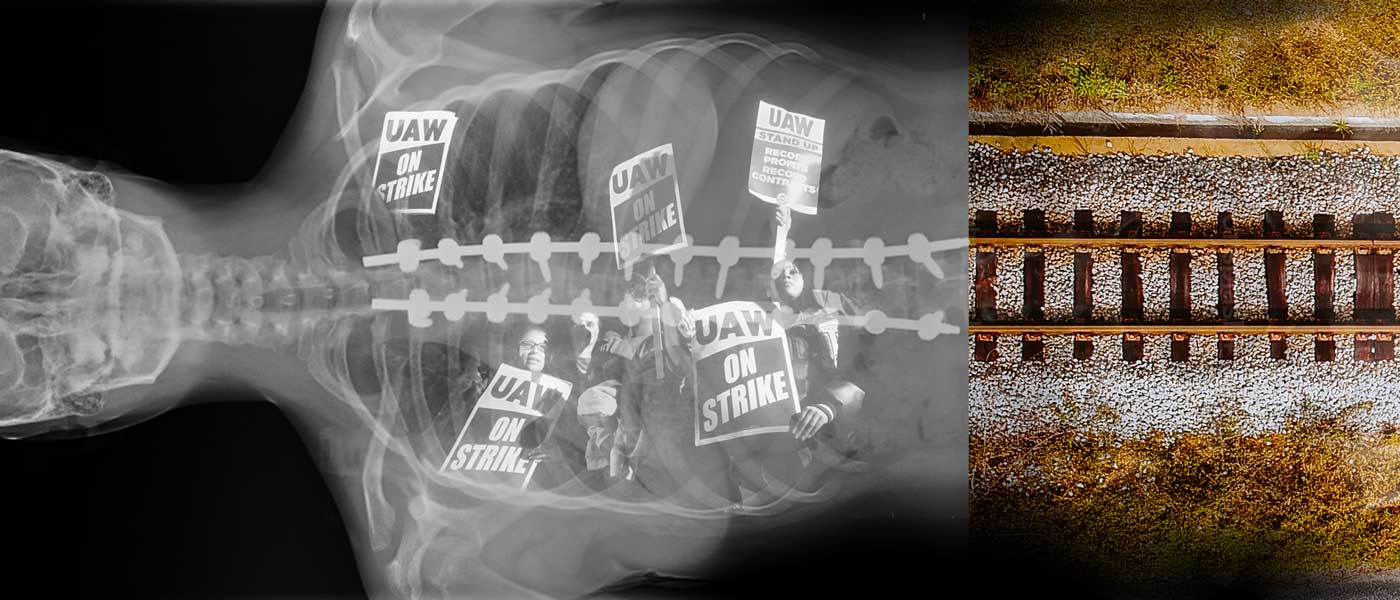Editorial Note: In June 2025, we will publish Issue 18: Radical Futurity, and within it, the work of these 14 incredible writers, poets, and artists. Below, you’ll find some words from each of the contributors about how they’re approaching the topic, and get a little peek into these brilliant minds. We’re so thrilled to welcome them all into the Wavey fam.
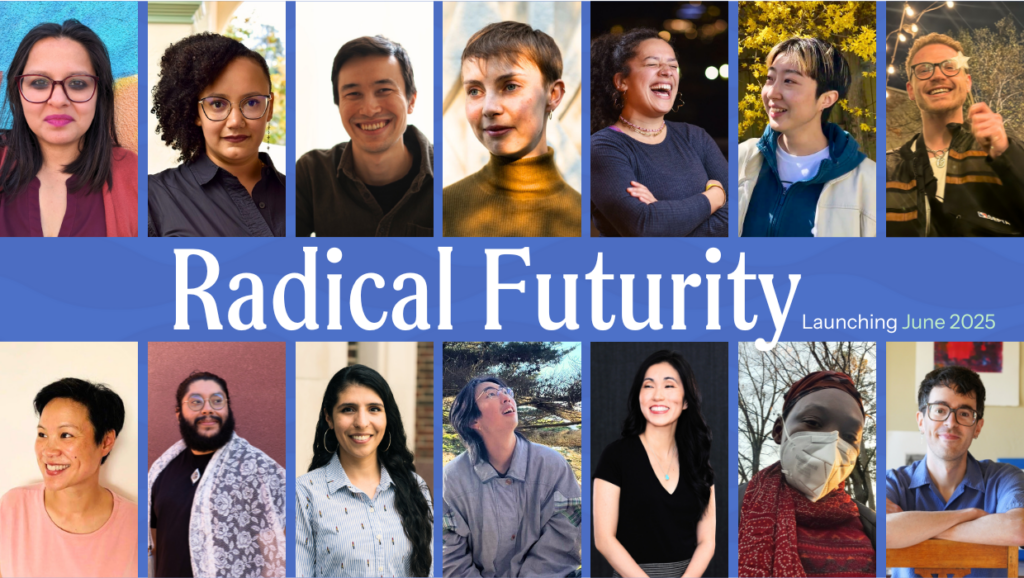
“My piece connects to radical futurity by projecting alternative ways of being that are collectivist, communitarian, ancient, and only possible in a bold, new vision and structure of the world. Colonization is not static, and resistance is not historical. I play with time, and consider cyclical and persistent threads of existence and connectivity to carry us through crisis.”
— Tatiana Chaterji
“As a queer, Black, disabled writer, my most urgent personal and creative goal is to dream against and beyond systemic oppression. On and off the page, I work to build a space of possibility where myself and my beloveds can exist as our whole selves — a space for building a future centered on collective connection, care, and accountability.”
— Samantha Stevens
“Even as world crises feel inadequately described by language, I still find myself reaching for something to, as Ursula K. Le Guin writes, express ‘in words what cannot be said in words.’ In my writing, I look to summon and sometimes subvert the linguistic logics of science to describe he political, or the personal, which is political.”
— Derek Yen
“Ambiguity is central to my work. And ambiguity not as inexactness, but as admission — a practice of making room for the messy, multi-faceted, and contradictory. I’m always looking to push past my own assumptions and into a more nuanced, polyvocal style.”
— Lauren Peat
“Exploring how food holds our history and culture, our grief and love, our generosity and greed, and so much more, is constantly at the forefront of my mind. When I think of our future and our humanity, I think of food. [My work] examines beauty right alongside the grotesque, cycles of decay and life that are inextricably connected and codependent, as well as themes of how we reach satiety — mentally, physically, and spiritually.”
— Isabella Higgins
“Taking my experience of burnout as a point of departure, my work explores the transformative potentiality of grief, failure, and a sense of hopelessness in envisioning alternative ways in which we relate to one another in the face of multiple genocides. Using letter writing as a method, I want to ask: How can we continue to show up for each other and dream of collective futurity when the ruling class continuously attempts to let us down? What does grief as bodily experience do in such collective imagining?”
— Aika Udagawa
“I try to approach the world from a place of curiosity, rotating concepts, looking at them from different angles, in an attempt to find shortcuts between ‘thinking’ reality and ‘feeling’ reality. It’s easy to learn a piece of information, but quite difficult to internalize it, to feel it in your emotions, your body, and then to act on it. My experimentation with combining visuals and text tries to bridge that gap.”
— Jeff Joseph Katz
“In my writing, I am driven by a desire and excitement to find patterns in the seemingly random, but mathematically gorgeous way the universe knits itself together. … My aesthetics and tensions come from the in-between spaces of maternal time, the in-between states of mother/daughter, and the in-between identities of being Taiwanese. I want to write the way warp and weft lock together to form an undulating plane.”
— brenda Lin
“I wrote the first draft of my poem in the back of an Uber in 2019. It was a response to a radio segment on antiquity. And I can’t remember the specifics, of what ancestors or relics were being mis/managed on air: at the time, I was caught up in learning how my future self would be remembered, if untombed. In the early drafts, the letters heavily speculated on my grave robber’s name. They called out to history’s most-likely, to: Abigails, Victors, Eduardos, Marias, and so on. Now this obsession of address narrows to John, to Juan — and for a split moment, You.”
— Julio Cesar Diaz
“My poem spotlights the quiet work that needs nurturing — the seeds that need to be planted and cared for, year after year — in order to make radical futurity a possibility. The transformation of ‘responsibility from a burden into a sacred act of love’ is not something that happens overnight; it needs tending, care, and consistent, yearly attention. Amidst ongoing violence in our world, the instructional form of my poem aims to highlight this need for ongoing care.”
— Seelai Karzai
“What needs to be transformed in our understanding of what constitutes a human such that we can behold and love one another? Such that the worlds we build can inseparably bind what we call ‘freedom’ to our insurgent networks of collective survival and flourishing?”
— Alex Wong
“Culture is not static — it captures for a time a society’s traditions and rules. But it does not always speak to whether those traditions treat all in its community fairly. I believe sharing stories of outliers can provide pivotal junctures for a group-oriented culture to expand in thought, reconsider what is acceptable and possible.”
— S. Isabel Choi
“I’m a poetic storyteller who creates in the speculative expanse, which means some things are poetry, some things are prose, some things are a synthesis or conversation. To the substance of it, my work often orbits the question, once we’ve dismantled all these influences within and without of violence/ation, can we live with ourselves.”
— Jeané D. Ridges
“These poems witness transformation, asking the reader to see a world without borders, where the human body is materially coextensive with its surroundings. They turn toward the spaces between longing and loss, myth and memory — asking how we survive, and how we love what remains.”
— Jake Rose
Please join us in welcoming these 14 voices into the Seventh Wave fam, and be on the lookout for their incredible work in The Magazine come June 2025!
